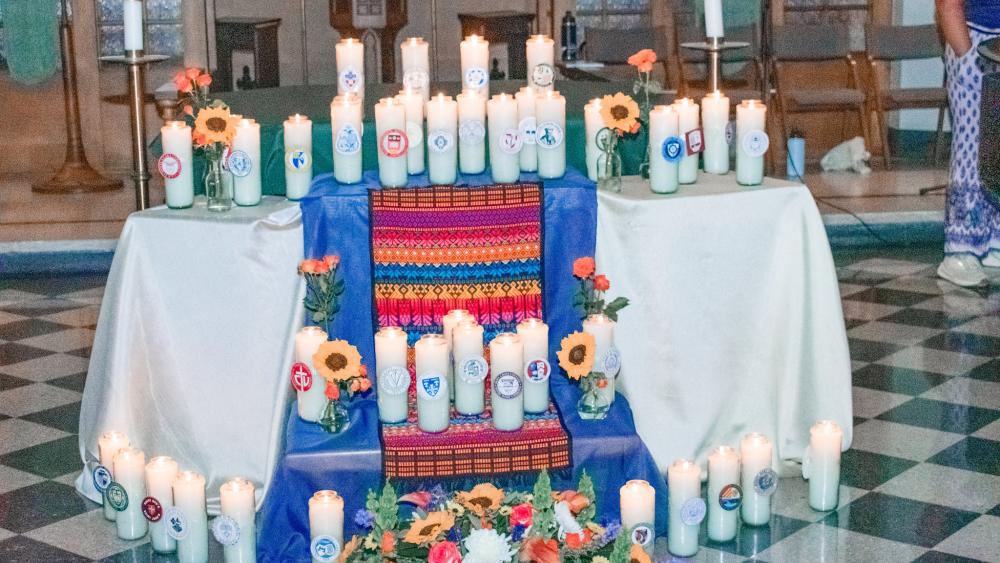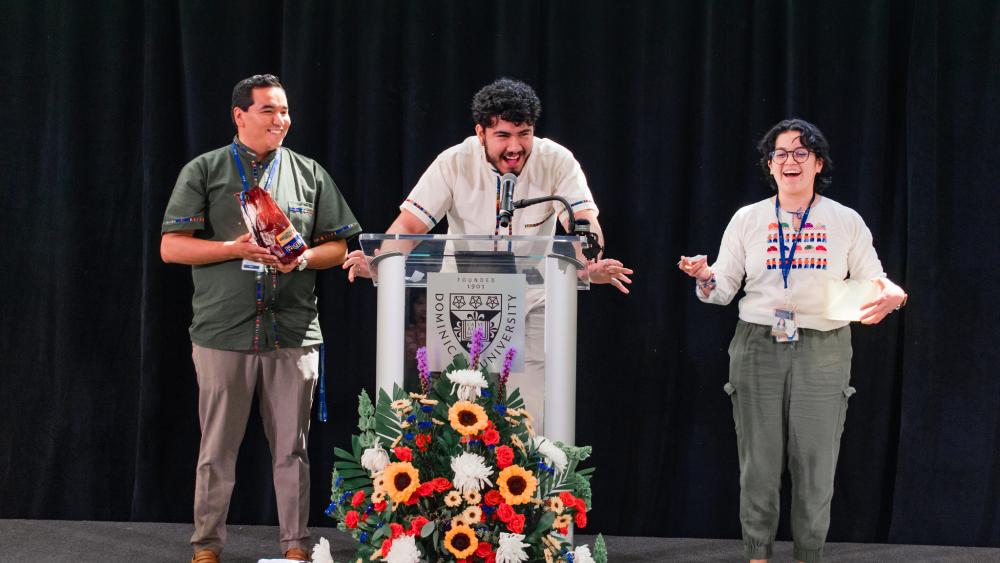Stepping Forward: PASOS Network Strengthens Leadership Roles for Young Adults in Catholic Higher Education, the Church and Society

Celebrating and strengthening Latine Catholic traditions and leadership within the church and Catholic higher education are aims of Dominican University’s new PASOS Network, which is taking shape this academic year.
Housed under the division of Mission and Ministry, the PASOS Network is a community that innovates culturally sustaining practices and ministries rooted in the faith traditions of students and their communities.
“Through the PASOS Network, we hope to re-envision what it means to serve and support students from historically and intentionally marginalized communities,” said Armando Guerrero Estrada, director of the PASOS Network. “We want to create a landscape that celebrates la cultura del pueblo (the culture of the people). One that acknowledges and celebrates the assets of Hispanic communities to our institutions of higher education, to the Church, and to society. We want our students to feel empowered and ready to pursue all that God is calling them to be.”

According to Guerrero Estrada, the work of the PASOS Network will focus on five key elements that support its work: pastoral (ministry), accompaniment, study, organizing and synodality (journeying together). These five areas are a reflection of the students Dominican University and other Catholic, Hispanic-Serving Institutions serve and will ground the imperative work of the PASOS Network, organizers said.
The work of the PASOS Network will also go beyond Dominican’s campus.
“Our aim is to inspire and equip other colleges and universities to adapt and implement culturally responsive ministry practices on their own campuses,” Guerrero Estrada said.
The network was formally introduced in August during the university’s ¡El Futuro is Here!, a three-day national conference for theological conversation.
Hundreds of participants from dozens of acclaimed Catholic institutions of higher learning around the nation joined the Dominican University community for the third iteration of the conference, gathering in the spirit of togetherness to embrace and advance culturally sustaining practices in ministry.
Students and academics attended presentations, discussions and reflections on how the cultural practices of Latine students contribute to a vibrant faith life “en lo cotidiano” (in the everyday).

The PASOS Network plans to offer an online platform or “digital commons” of academic and pastoral resources to build and strengthen intercultural understanding among those working with traditionally marginalized communities at other institutions. Additionally, the network also plans to host a lecture series that promotes culturally sustaining ministerial practices, launch a journal with Dominican students as editors that celebrates theology, arts, and culture, and commission studies of university ministry practices.
“As we move toward a formal launch of the PASOS Network, our vision is to transform the landscape of higher education in general, and Catholic higher education specifically, so that students from historically, intentionally, and traditionally marginalized communities can thrive in an environment that fosters vocational discernment, leadership development, and holistic formation,” Guerrero Estrada said.
Hosting events that are of special significance and interest to the Latine community at Dominican and beyond are also important to these efforts.
On Oct. 12, the network co-presented its first public program: an appearance by writer, poet and speaker
Javier Zamora. Zamora discussed his memoir Solito, in which he explores his own immigrant experience and the journey he took to the United States alone at the age of 9. One aim of this program was to inspire students to reclaim their identities and write their own stories, embraced by the university community.
Luz Rodriguez Camacho, a second-year student at Dominican who participated in ¡El Futuro is Here!, said she hopes to be involved in the PASOS Network’s future work.
“I know there will be opportunities as students to learn a lot from other institutions, just as they can learn from us,” she said. “It’s also a way for us to share our culture as Latinos.”
Bryan Gonzalez Delgadillo, a third-year student, said it is important that students coming from Hispanic backgrounds remember their cultural roots and that universities around the country share in the work Dominican is doing to make that happen.
“Having a purposeful program that wants Latino leaders and leadership inspires other people to want to be leaders,” he added.
